Điểm nhấn
-
 Hội thảo “Thực trạng người Việt Nam hồi hương từ Vương quốc Anh giai đoạn 2014 - 2023”
Hội thảo “Thực trạng người Việt Nam hồi hương từ Vương quốc Anh giai đoạn 2014 - 2023”
-
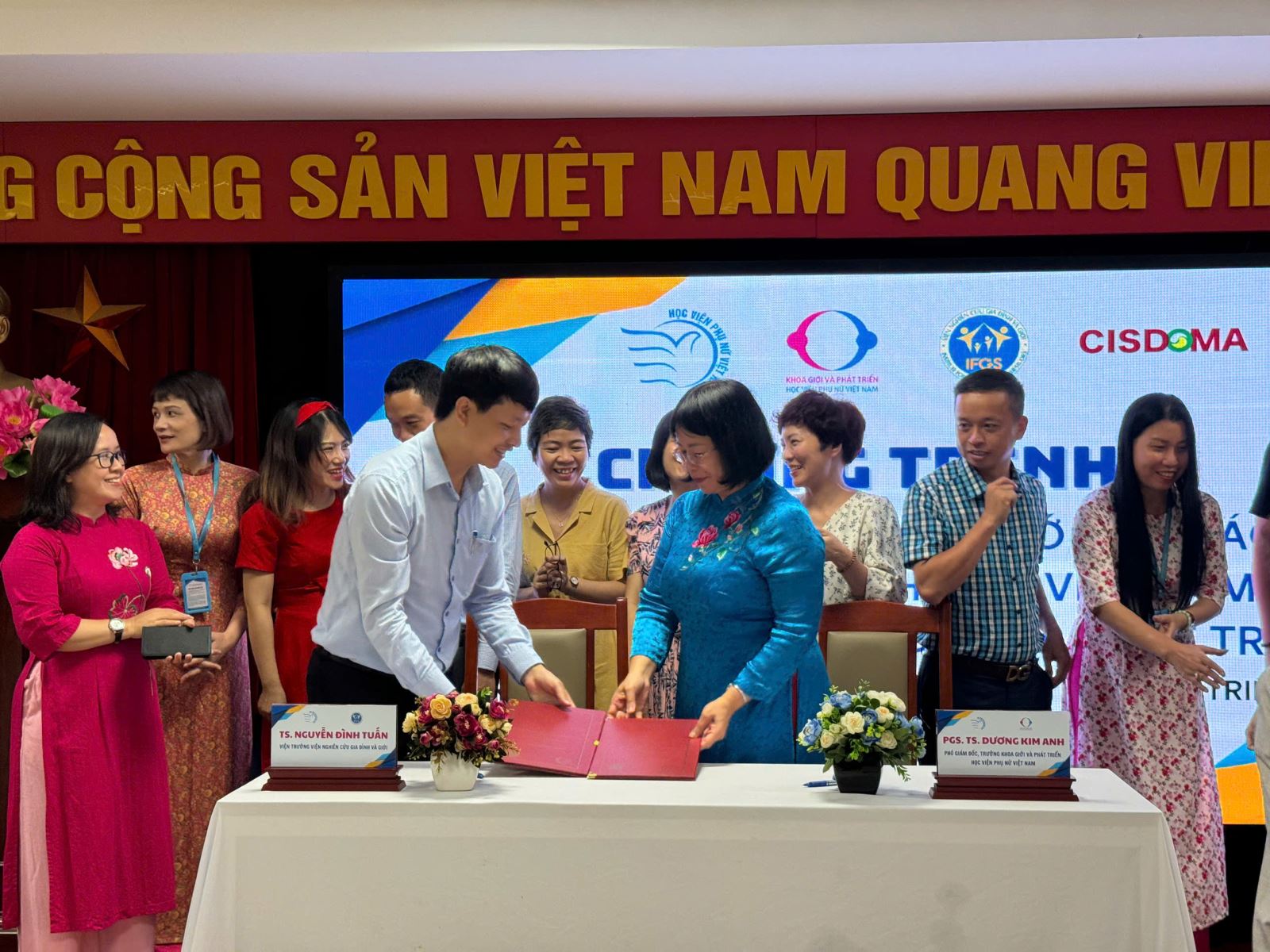 Lễ Ký kết biên bản ghi nhớ hợp tác giữa Học viện Phụ nữ Việt Nam với Viện Nghiên cứu Gia đình và Giới
Lễ Ký kết biên bản ghi nhớ hợp tác giữa Học viện Phụ nữ Việt Nam với Viện Nghiên cứu Gia đình và Giới
-
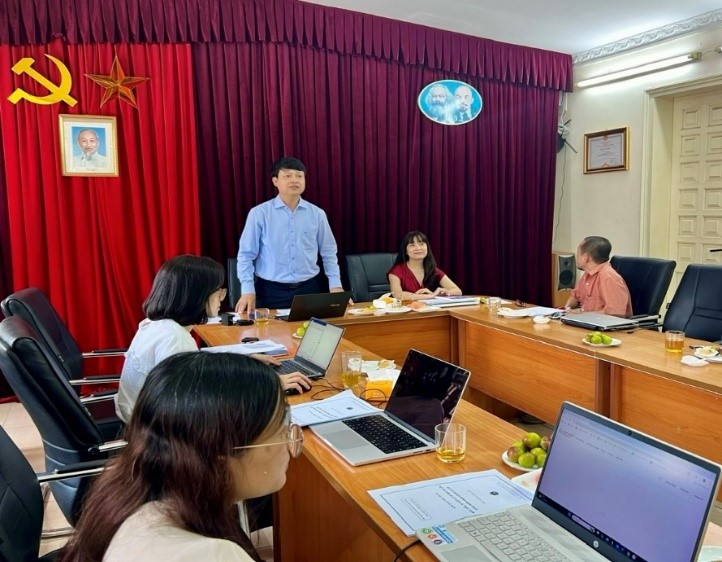 Hội thảo khoa học: "Bộ chỉ số gia đình hạnh phúc: Một số vấn đề lý luận và thực tiễn"
Hội thảo khoa học: "Bộ chỉ số gia đình hạnh phúc: Một số vấn đề lý luận và thực tiễn"
-
 Tọa đàm khoa học "Vận dụng lý thuyết trong nghiên cứu khoa học xã hội"
Tọa đàm khoa học "Vận dụng lý thuyết trong nghiên cứu khoa học xã hội"
-
 Hội nghị Đối thoại giữa Chi ủy, Lãnh đạo viện với đảng viên, viên chức và người lao động Viện nghiên cứu Gia đình và Giới 6 tháng đầu năm 2024
Hội nghị Đối thoại giữa Chi ủy, Lãnh đạo viện với đảng viên, viên chức và người lao động Viện nghiên cứu Gia đình và Giới 6 tháng đầu năm 2024
-
 Chi bộ Viện nghiên cứu Gia đình và Giới tổ chức sinh hoạt chuyên đề: Đoàn kết thống nhất trong Đảng theo tư tưởng Hồ Chí Minh
Chi bộ Viện nghiên cứu Gia đình và Giới tổ chức sinh hoạt chuyên đề: Đoàn kết thống nhất trong Đảng theo tư tưởng Hồ Chí Minh
-
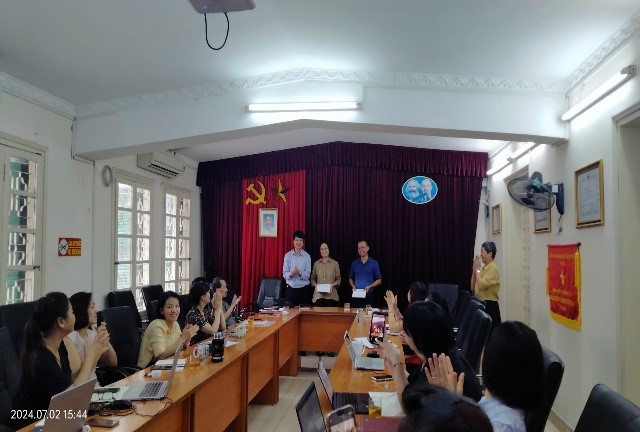 Cuộc thi “Nét đẹp và giá trị gia đình Việt Nam” hưởng ứng Ngày Gia đình Việt Nam 2024
Cuộc thi “Nét đẹp và giá trị gia đình Việt Nam” hưởng ứng Ngày Gia đình Việt Nam 2024
-
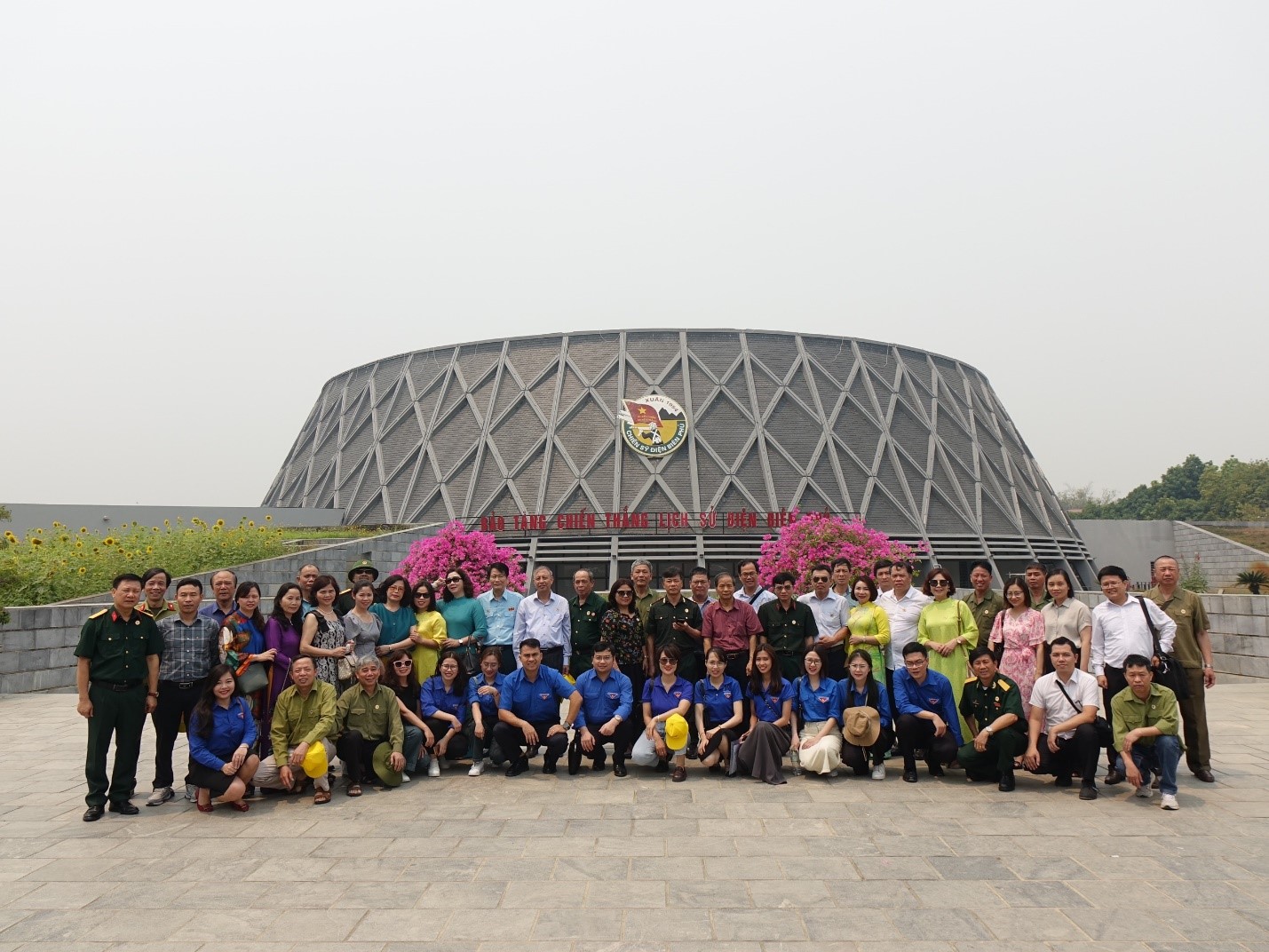 Hội Cựu chiến binh, Đoàn Thanh niên Viện Hàn lâm Khoa học xã hội Việt Nam đi thăm lại chiến trường xưa Điện Biên Phủ
Hội Cựu chiến binh, Đoàn Thanh niên Viện Hàn lâm Khoa học xã hội Việt Nam đi thăm lại chiến trường xưa Điện Biên Phủ
- Tổng mục lục Tạp chí 2023
-
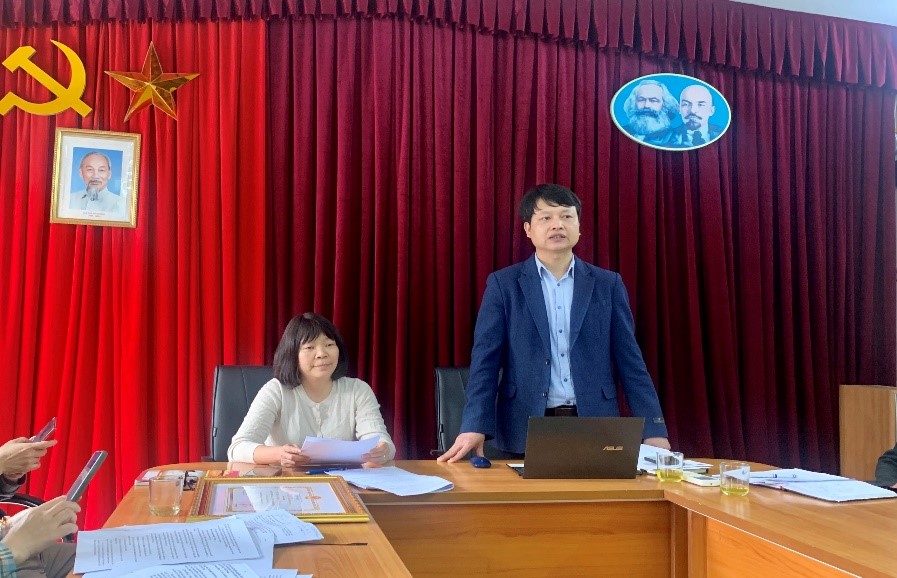 Viện nghiên cứu Gia đình và Giới phát động phong trào thi đua và ký Giao ước thi đua năm 2024
Viện nghiên cứu Gia đình và Giới phát động phong trào thi đua và ký Giao ước thi đua năm 2024
Liên kết web
Số lượt truy cập
78
4743596
Chi tiết tạp chíNo. 2-2014
Seminar: Some Theories in Family Value Research
In order to promote scientific exchanges between all research departments of the Institute for Family and Gender studies, on the 11th of June 2014, in Hanoi, a seminar “Some theories in family value research” was held by the Department of Family studies. This is also one activity in the implementation of the ministry-level project “Vietnam family value system under sociological perspective” (Case Study in Thai Binh province) in 2013-2014 by the Department of Family Studies.
Workshop attendants included the leaders and officers of the Institute for Family and Gender studies, as well as the project participants. The workshop was divided into two main parts: 1. Theory presentations; 2. Discussion.
In part one, there were 03 reports, including: The report “The theory of modernization and post-modernization” was presented by Dr. Le Ngoc Van. After some main points on theories, the report focused on analyzing the impacts of modernization on family and the application of modernization on family value theme.
The second report “Theories on intergeneration value transformation” was by Dr. Mai Van Hai. On the basis of the characteristics of the three agricultural, industrial and post-industrial societies, the author emphasized that the intergeneration value transformation was a continuous process.
The report “Cultural relativism” was presented by Dr. Dang Thi Hoa. The theory emphasized that the process of cultural changes took place through the contact of two or more separate cultural systems that result in making them becoming more alike. This is an important theory in family value research.
The discussion was very exciting in the second part of the seminar, not only on the three theories, but also on the interaction between family values and personal values in the comparison between Eastern and Western societies. A broader view on theory application in family researches in Vietnam in various levels was mentioned: macro, medium theories, and theoretical hypotheses.
Some issues were suggested to be clarified in future studies, including: the impacts of industrialization and modernization on Vietnam family value transformation; the transformation of different values in each family groups; how to measure family value transformation; research on values in motion; the combination of different theories in Vietnam family value transformation analyses; etc.
Dr. Nguyen Huu Minh, Director of the Institute for Family and Gender studies confirmed the success of the seminar and stated the plan to organize these scientific seminars held by the institute departments, and concentrating on scientific issues under the institute’s research orientation.
Workshop News: Reports on Scientific Research in 2013 of the Institute for Family and Gender Studies
As a part of the annual scientific activities, in June and August 2014, the Institute for Family and Gender Studies organized two scientific seminars on scientific research in 2013 of the Institute for Family and Gender Studies. Seminar attendants included the leaders and research staffs of the Institute.
The first seminar was held on the 19th of June 2014, divided into two sessions with the following topics: 1. research on women, children as well as the elderly, and 2. research on family. Reports in the first session on women, children and the elderly were about: Gender and employment in rural areas since joining the WTO; Violence against the elderly in family and a number of issues to be raised; preschool approach of children in Vietnam during the current period. At the second session, the reports on Family Research included: The Vietnam family values from sociological perspective (Case Study in Thai Binh Province); The perception, levels and factors affecting family happiness: a case study in Quang Ngai province; Divorce: Some theoretical issues, methods and research of interest.
The second seminar was held on the 22nd of August 2014 with 2 themes: Research on family relationships and gender and Research on Children and Adolescents. The topic on Research on family relationships and gender was inclusive of three reports: Parent - adolescent relationship in psychological and emotional life in the North Central; Some factors affecting the relationship between the elderly and their younger generations nowadays: A case study in Bac Ninh province; Some gender issues in the informal sector in the current period. Reports in the second session of Research on Children and Adolescents were: Right to child health care: Issues to be raised in Vietnam today; Childcare in the family under a gender perspective in the context of globalization; and value orientation for Juvenile in the Red River delta villages for sustainable development.
The scientific reports presented at the seminars received many useful recommendations, so that authors can complete research results in both content and method. In the seminar evaluation, Dr. Nguyen Huu Minh City, Director of the Institute for Family and Gender Studies, concluded: The scientific seminar objectives in sharing research results of the Institute in recent years, suggesting research directions in the coming time, and attracting young researchers to participate more actively in research activities and scientific exchanges so that to enhance research capacity, were achieved.
Production and Reproduction Roles of Women in Ho Chi Minh City
This study aims to point out the differences between the North and the South of Vietnam, more particularly, Ho Chi Minh City (formerly named Sai Gon) and Hanoi, in terms of family and work roles of women. It helps to explain the ways women in Ho Chi Minh City reconstruct their reproduction role, the attitudes of Southern husbands towards household tasks and the husband-wife relationship in the Southern family. The literature in Vietnamese studies shows that the regional differences remain considerable. Studies on Ho Chi Minh City therefore must take into account the geographical, historical, cultural, social and economic context. Even the notion of ‘family in Ho Chi Minh city’ cannot be understood as the same notion of ‘family in the South’ due to the differences between urban and rural life.
The process of gender socialization plays an important role on influencing how women and men involved in political life. In Vietnam, this process is still immersed in a Confucian context that pulls women back in the political arena. Gender norms formed in the past are continuing to put pressure on women in a harder way than on men. Consequently, despite many efforts of the Vietnamese government, its Communist Party, and related agencies over more than half a century since the August Revolution of 1945, Vietnamese women have attained limited status and power in the political field, especially in leadership roles. This article provides information on how such gender norms were formulated under cultural context throughout history and their influences on how political elites feel about women’s political participation in Vietnam today.
Exploring Social Trust of Vietnamese People: the Evidence from an Empirical Study
This is a study exploring the social trust of Vietnamese people. Based on the data of a large scale survey of 1430 households’ representatives in northern, central and southern Vietnam, the study has modeled the observed indicators in order to extract the components of general social trust. The findings show that the general social trust of Vietnamese people has a complex structure consisting of at least five components: trust in members of the immediate family, trust in non-members of the immediate family, trust in public servants and officials, trust in mass media and trust in social groups and classes. Trust in members of the immediate family is the highest while trust in non-members of the immediate family is the lowest. However, it is paradoxical that the high level of trust in members of the immediate family does not contribute an equivalent weight to general social trust. On the contrary, although trust in non-members of the immediate family is low, it contributes the most significant weight to general social trust. The research has also found that the general social trust of Vietnamese people is significantly varied across sub-groups of the population from the perspectives of gender, regional and socio-economic backgrounds.
Cases of the Dong Khanh and Ao Tim Female Secondary Schools
Franco-Vietnamese High Schools during the Period 1920 - 1945 and the Formation of Intellectual Women
This paper focuses on a collection of testimonies from some generations of former students who attended two female high schools, Ao Tim in Saigon and Dong Khanh in Hue during the period between 1920 and 1945. Its purpose was to study the memories and thinking of these students about the process of female students becoming mature in the Franco-Vietnamese education. Although Franco-Vietnamese schools in colonial time had their imperfections, the former female students acquired good human values under a system of selecting only those that were suitable to the Vietnamese culture. These newly-learned human values enriched the spirit of the nation. Female students became mature in the interactions of the French and Vietnamese cultures. Through the establishment of the Franco-Vietnamese school system, Vietnamese females officially obtained their schooling for the first time and consequently succeeded and participated in various intellectual activities of their society. The self-confidence from this first generation of intellectual females was improved as a result of the initial awareness of the important position of women in society.
Based on quantitative and qualitative data collected in the case study in 3 sub-urban communes of Hanoi conducted in 2013-2014, this paper presents selected aspects of human capital, social capital and access to information of young people (aged 18-34) living in sub-urban areas. Empirical evidence in this study shows that young people in sub-urban areas of Hanoi have good education and vocational training, no less than the level for young people in urban Hanoi. They have good health and sensitive with technological innovation products such as computer, internet, mobile phone. However, young people seem to lack capacity to make full use of their potentials, especially their social and information capitals. Community attachment and relations with local government are becoming increasingly a formality more than substantial values. Only family ties remain strong but start to show sign of degradation.

